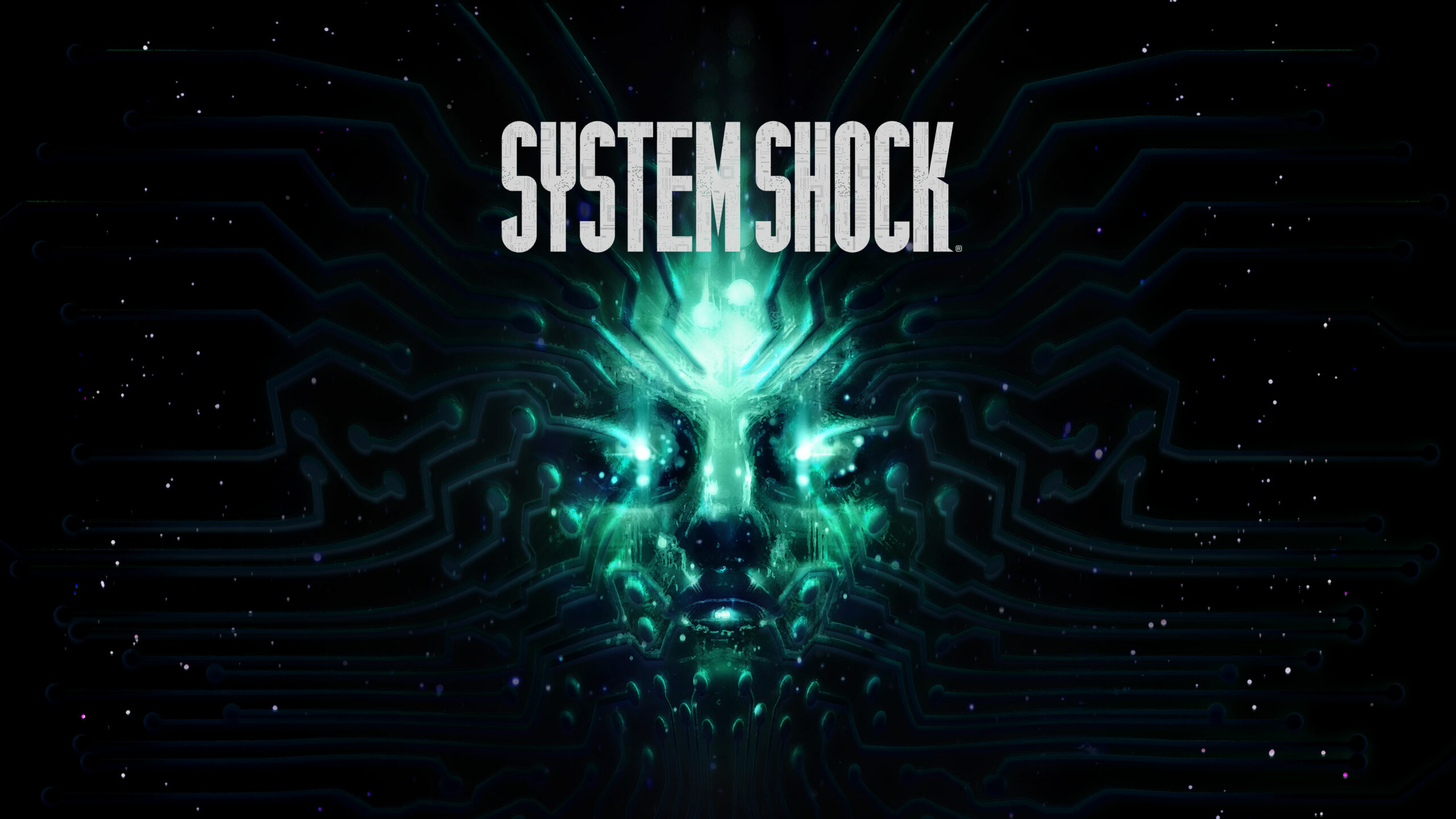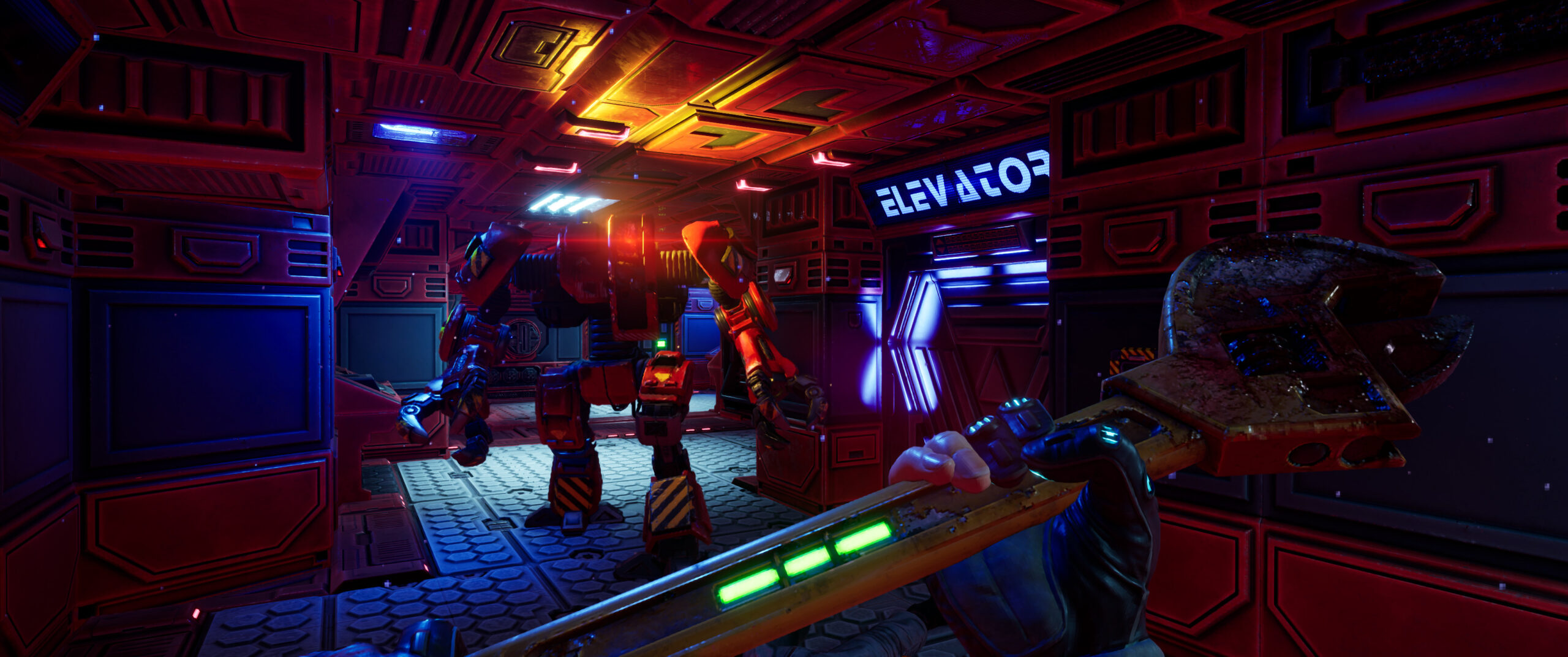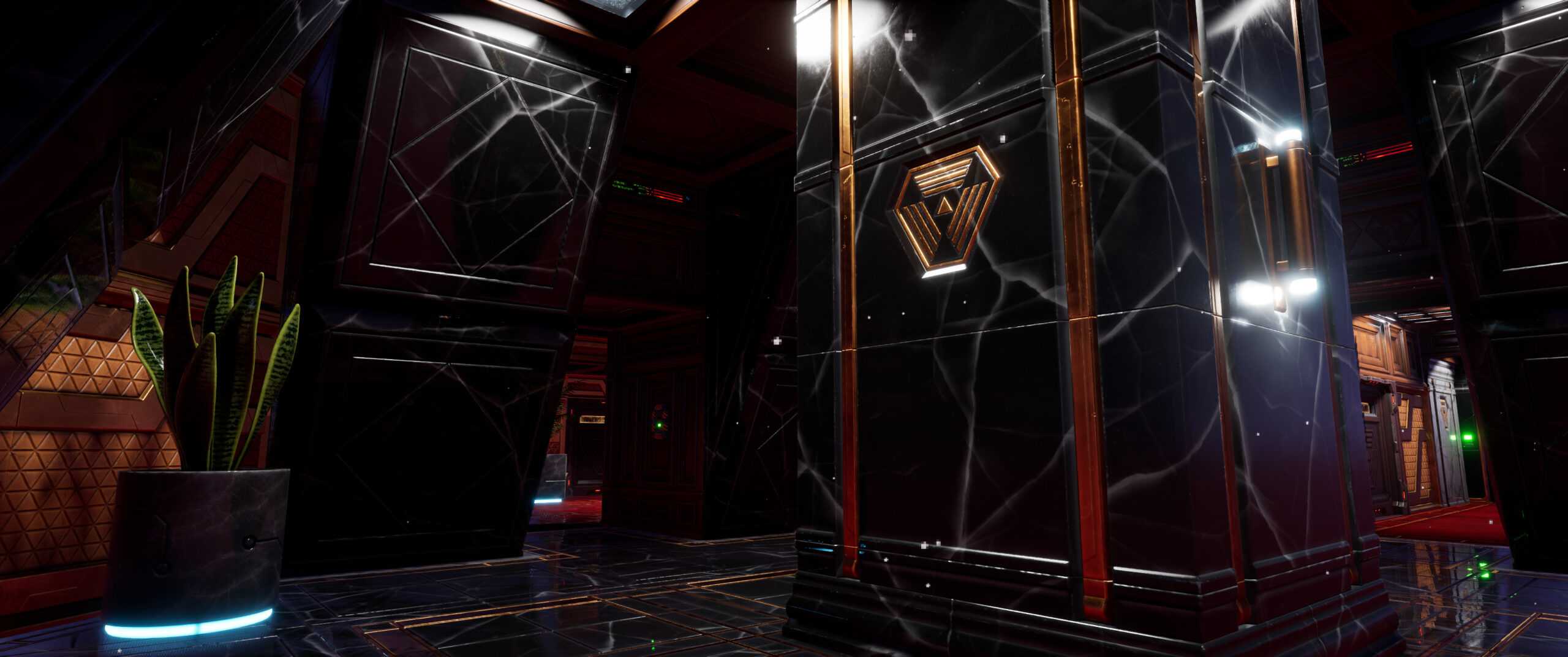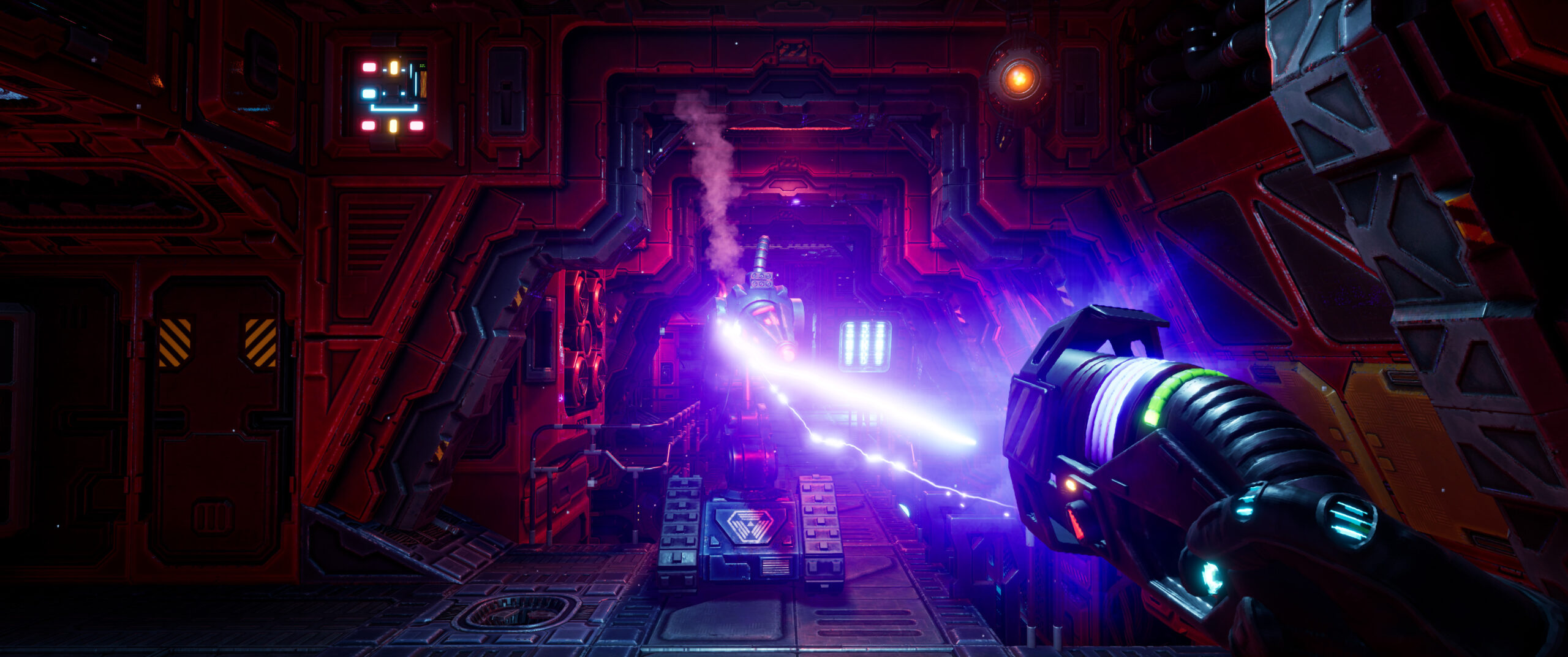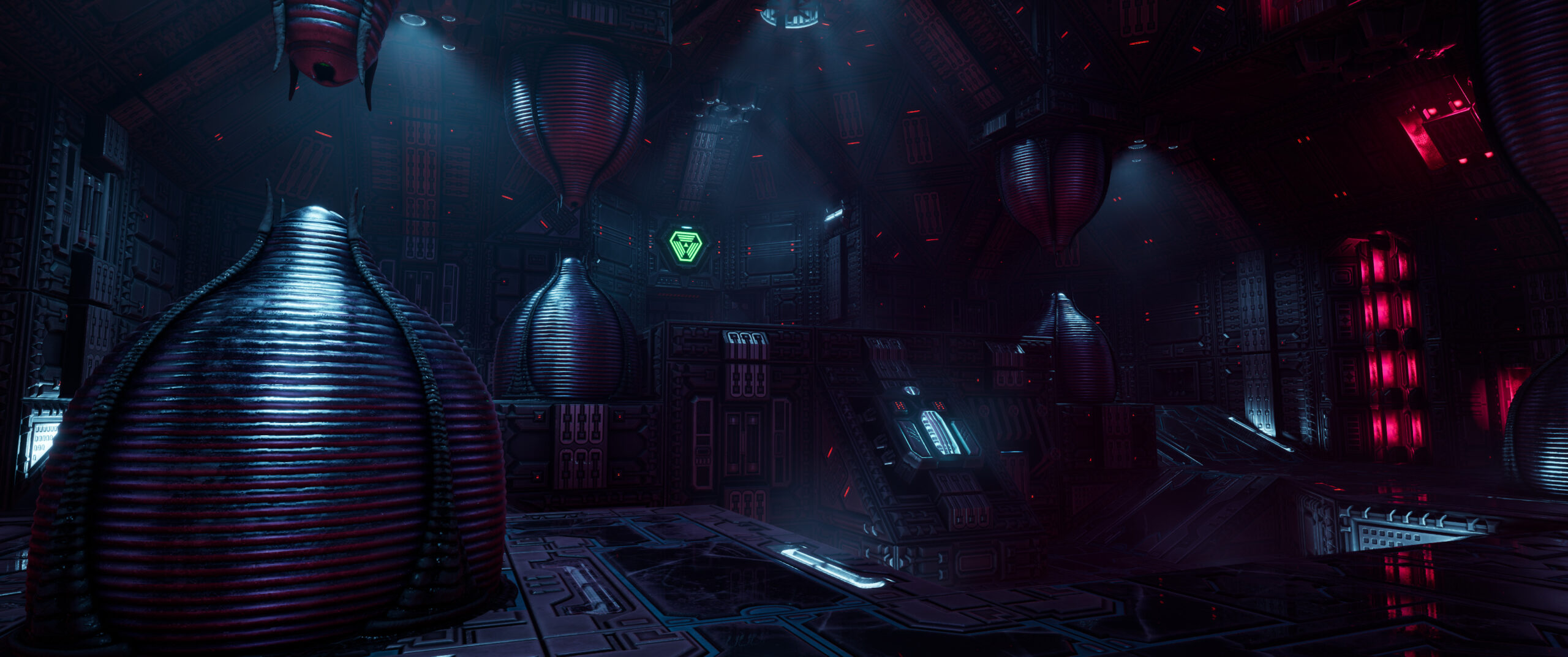‘How do you remake a video game?’ is a question with a broad range of answers. In an age where the concept of a ‘video game remake’ is so malleable, trying to be definitive is a fool’s errand. The horror genre serves as proof of this, with titles like Resident Evil 4, Dead Space and the upcoming Silent Hill 2 each presenting their own vision of what a remake can be. Now, after many iterations during a notably protracted development cycle, Nightdive Studios has found its answer to this pivotal question with System Shock; but is it an answer that will please everyone waiting on an upgraded version of this seminal classic?
Overall System Shock is a very faithful adaptation of many of the original game’s qualities. The highlight by far is the suite of visual updates developer Nightdive has made. The world of System Shock is rendered with a fresh art style that blends modern graphics with pixelated textures.
This works to great effect in immersing the player whilst retaining the feel of the original’s labyrinthian layout. From the dark, electric squalor of the Medical floor to the gilded opulence of the Executive chambers, each level of Citadel Station creates a singular atmosphere that draws the player into exploring the world authentically.
The increased fidelity also works to make the horror of SHODAN’s possession of the Station and its inhabitants all the more terrifying; glimpses of humanity eek through the mutants’ warped, haunted expressions, and the various corpses strewn about the ship are cast with newfound misery under the remake’s lighting engine. All of this is bolstered by the game’s fantastic voice acting. Terri Brosius returns as SHODAN and is as intimidating as ever, the character’s cold, contemptuous malice at the forefront of every delivery. It is immediately apparent to any newcomer why SHODAN is held in such high regard after all this time; the character and performance are timeless.
Beyond SHODAN, the writing and voice acting are strong across the board. The fear-struck ramblings of the Station’s dwindling crew that make up the voice logs littered across the map are always chilling, and each enemy’s vocal signatures are distinct and effective, punctuating the soundscape with a scream of ‘danger’. A particular stand-out is the Exec-Bots, who greet you with corporate pleasantries as they attempt to blow you apart.
In summary, the game’s presentation is lovely. A remade intro provides a smooth onboarding experience for new players and overall the game feels enlivened by the touches Nightdive has added. However, these aren’t without their flaws. The increase in visual and auditory clutter can distract somewhat from the ‘purity’ of the game’s design; key items and interactables especially can be obscured within the environment and, though given a slight sheen, are easily missed. There was more than one occasion in my playthrough where I reached an impasse only to backtrack and find a key I’d missed in a room, buried in a sea of detail.
For the most part, the remake is a win in the audio-visual department – but what about the gameplay? It’s clear from minute one that Nightdive’s intention was to remain as faithful as possible to the original in this aspect; the map is nearly one-to-one, and I’m confident that you could beat this game following a guide for the 1994 release with little discrepancy between the two experiences.
You’ll be relieved to hear that the controls have been modernized in a major way. The awkward controls serve as the most long-standing complaint about the original System Shock, and for good reason; they’re almost entirely alien to any scheme an average player will have used before, using an ASDX scheme for moving and lacking a mouse-look option. 2015’s Enhanced Edition tried to improve the controls, but the issue couldn’t entirely be rectified in the OG version of the game.
2023’s System Shock, on the other hand, controls like any modern FPS you’ve likely encountered. The game supports the use of a controller in addition to a mouse and keyboard, and both inputs feel generally fine. Shooting is still a bit stiff, and playing with a controller makes inventory management harder than it needs to be, employing an analog cursor, but overall they’re entirely playable. The majority of my time with System Shock was spent on a Steam Deck, and I was able to beat the game just fine. The controls do the job of supporting its systems and certainly stand miles ahead of the original’s cumbersome scheme.
What complicates this slightly is the remake’s poor hit feedback. Not only do most enemy attack animations feel unclear and imprecise, but it’s frequently hard to judge swinging distance with melee weapons, leaving close-quarters combat incredibly unsatisfying and an option I often chose to avoid. This is a consistent frustration that plagued my entire playthrough, and getting what feels like an unfair hit or missing a swing you feel should land is always unsatisfying. There are bright spots in the animation work, though, and the player character’s animations shine through in particular, characterizing them in each interaction they have with the game world.
The other primary frustration is a series of bugs that popped up on occasion. The worst of these were crashing issues involving the Virus Mutant and a late-game weapon, which would sometimes send me back to the desktop when spending time around these creatures or firing the gun, though it’s unclear what specifically triggered these crashes.
Less egregious was a freezing issue that sometimes occurred when loading a quick save (a stellar feature that saves so much time when exploring Citadel Station), though this would fix itself upon reloading, and a consistent re-enabling of ragdoll physics on defeated enemies when reloading a save or backtracking to an area. This didn’t impact gameplay at all but was immersion-breaking every time it happened. However, I did see these glitches primarily on my Steam Deck and am unable to verify if any of them are solely due to the Deck’s lesser computing power or the use of a Proton compatibility layer.
The game is still technically impressive on the whole though, and will run well on most systems. My RTX 3070/Ryzen 5 5600x PC was able to support the remake at a stable 1440p (DLSS Quality)/120 FPS at max graphics settings, and on Steam Deck, I set the game to 800p/40 FPS at medium settings and saw a few drops. The game provides a solid selection of graphics options and though there are several accessibility features missing (such as directional audio indicators and the ability to customize subtitle appearance), what ones are there are generally helpful.
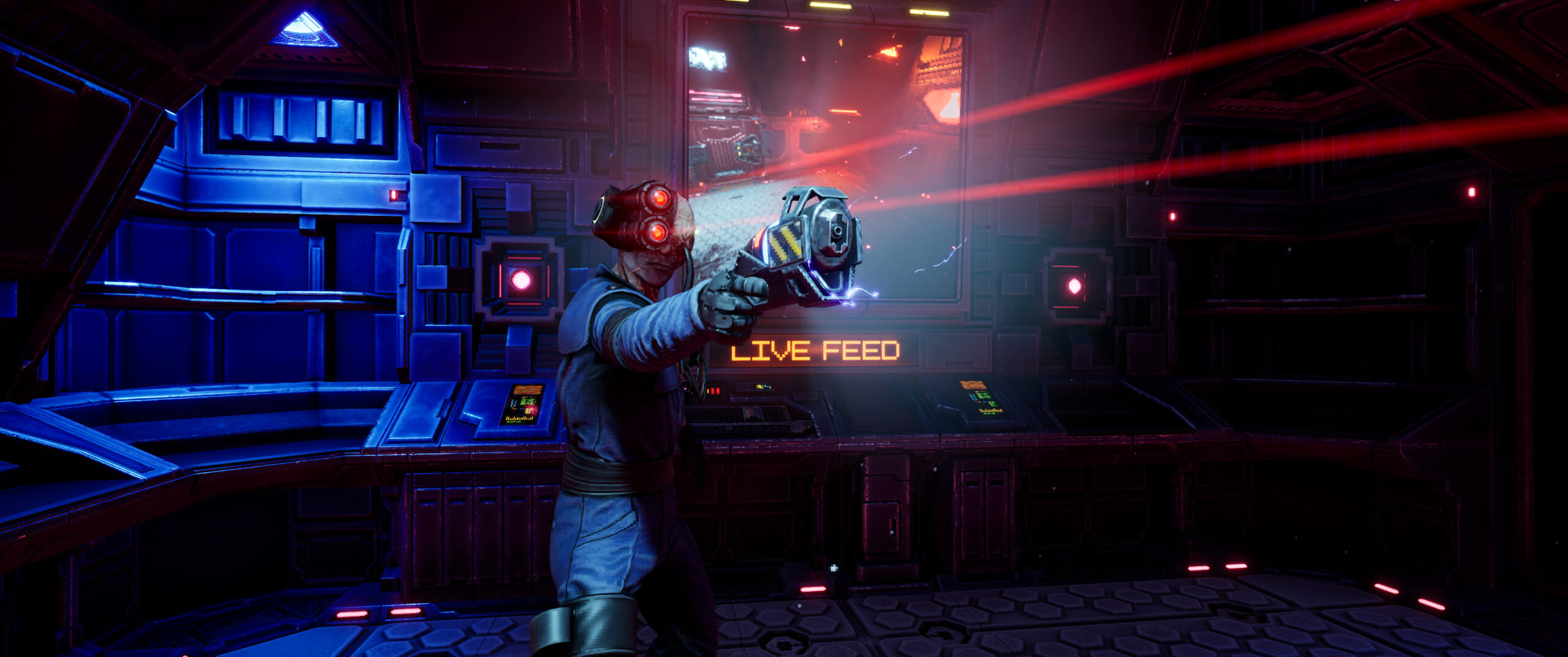
There are still plenty of positives on the gameplay front, however. Cyberspace, System Shock‘s version of a hacking minigame, is better than ever here. The remake renders it as a first-person Geometry Wars-esque bullet hell, covered from head-to-toe in intense neon visuals and filled with abstract constructs. Though the perspective can sometimes make it hard to dodge projectiles, these segments are a delight to play through and always serve to break up the game’s pacing well.
Fans will also take delight in knowing so many of the systems the original pioneered are almost all intact here. Segmented difficulty selection, for instance, is back, allowing players to select different difficulty levels for 4 categories of gameplay; Combat, Mission, Cyber, and Puzzle. Unfortunately, unlike the original, these only range from 1-3, and the game lacks the ‘0’ option, which effectively removed any challenge from that element of gameplay. This is a definite shame and one of the only areas where the remake is a direct downgrade from the classic ’94 release.
System Shock takes a unique approach to structure. After the brief intro, the player is pretty much left to their own devices as they explore the Medical floor of the Station. There are no waypoints here, and the game does very little to directly guide you. Instead, you’ve got to figure out what to do yourself by scouring the area for audio logs, trying to piece together not only what happened, but how to correct it. This is very much in line with how the original game operated and is in large part what fans of System Shock love so much about it, but any newcomers expecting a modern approach to design should know that that isn’t what this iteration is aiming for.
The remake can be obtuse as hell, to the point of sometimes being frustrating, if you aren’t the type of player who finds writing down notes and backtracking to explore every last nook and cranny fun. In short, the game demands a lot of you, but if you’re willing to put the work in and approach things with a different mindset than most titles, it will absolutely reward you. At its very best, when the game really has its teeth in you, your exploration of Citadel Station will be atmospheric, tense, and rewarding. At its worst, System Shock can feel like repeatedly slamming your head against a wall. Fortunately, these moments are often brief.
This makes System Shock a complicated game to recommend, and leads us back to the central question; ‘How do you remake a video game?’ A modern take on a classic like this has the weight of anticipation behind it and a variety of different audiences with contrasting needs looking forward to seeing theirs met. Do you make an ultra-authentic remaster that appeals to diehard fans? Do you make a fully-modernized reboot that brings in hordes of new players but may alienate older ones? Do you try and compromise by appeasing all parties but also run the risk of mass disappointment?
System Shock definitely belongs to the final camp, combining a traditional approach to the immersive sim with a range of smart improvements that, for the most part, improve the game in a way players will be happy with across the board. I’m sure sects of classic System Shock fans will be displeased with some of the artistic liberties the remake takes, and there will no doubt be plenty of people completely turned off by the way the game operates, but if you know what you’re getting into, I think it will delight.
On one final note, I will mention that System Shock publisher Prime Matter‘s choice to market the game using AI art is a disappointing one, and for those like me who care about such a thing, it serves to diminish the hard work of artists who put their time into creating experiences such as this. It’s a frustrating choice to see made, and one that put a slight damper on my time with the game.
‘How do you remake a video game?’ Nightdive’s answer is by no means perfect – occasional visual clutter, poor hit feedback, and a range of bugs hold it back from being truly outstanding – but System Shock is a confident remake that will help preserve the legacy of this influential classic into the future, cementing why it has endured all these years in the first place. Enjoy, Insects.
 (7.5 / 10)
(7.5 / 10)
Good
 (7.5 / 10)
(7.5 / 10)Rely on Horror Review Score Guide
Steam review code provided by the publisher.

